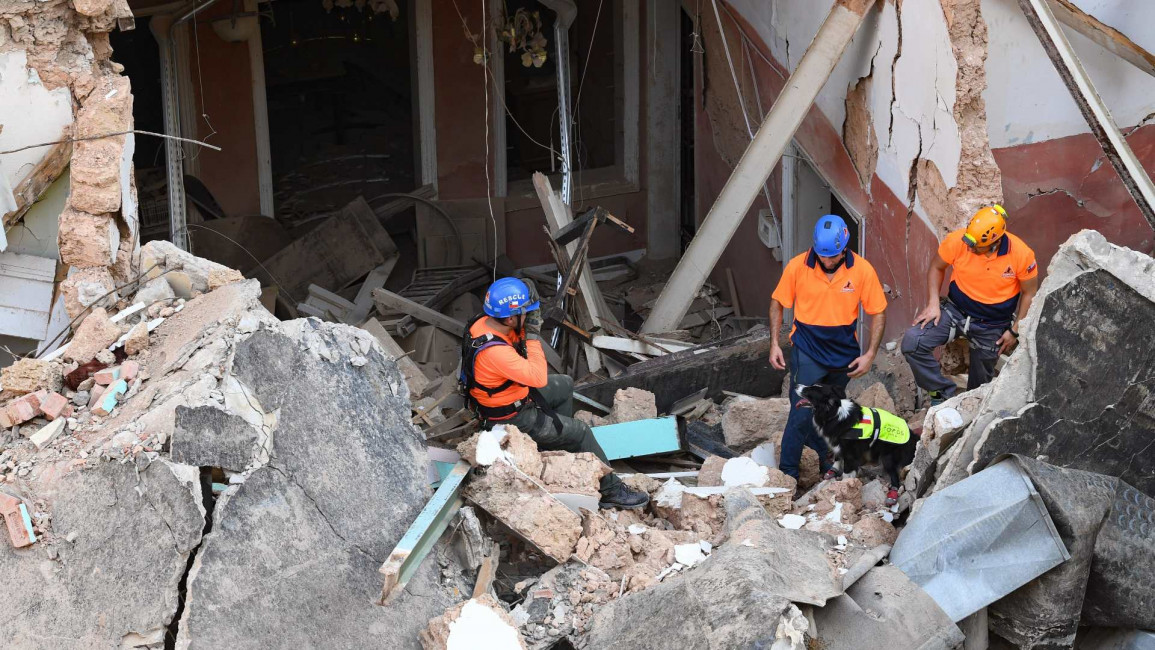'Pulse detected' under Beirut rubble sparks search and rescue operation
A Chilean rescue team began an operation on Thursday to search through the rubble of the destroyed building, located in the Mar Mikhael area near the port, for the possible survivor of the 4 August blast.
"The rescue teams sense a movement under the rubble in the Mar Mikhael area and asked people to remain silent to determine the source of movement," the NNA said.
A small crowd of locals and reporters were seen gathering around the rescue operation posting videos of the operation to social media.
|
|
Speaking to reporters at the scene, Beirut's governor Marwan Abboud told reporters that there "could be survivors."
Abboud explained that scanners had detected a pulse, however faint the hope of finding anyone alive more than four weeks after the explosion.
"We hope someone will make it out alive," Abboud said.
Michel Al-Mur from the Beirut fire department also said a pulse was detected about two metres (six feet) below the rubble.
"One person, according to the (thermal) camera, still has a pulse," Mur said.
The building has completely collapsed as a result of the blast that killed 191 people, wounded more than 6,500 others and destroyed swathes of Beirut.
Seven people are still missing, according to the Lebanese army.
Chilean rescuers, Lebanese civil defence teams, and Beirut fire department workers were excavating the site.
Speaking to local broadcaster LBCI, a rescue worker said scanners had picked up a respiratory rate of "19 breaths a minute".
Friday marks one month since the Beirut blast that authorities say was caused by a shipment of ammonium nitrate left to languish for years at Beirut's port.
Agencies contributed to this report
Follow us on Facebook, Twitter and Instagram to stay connected



